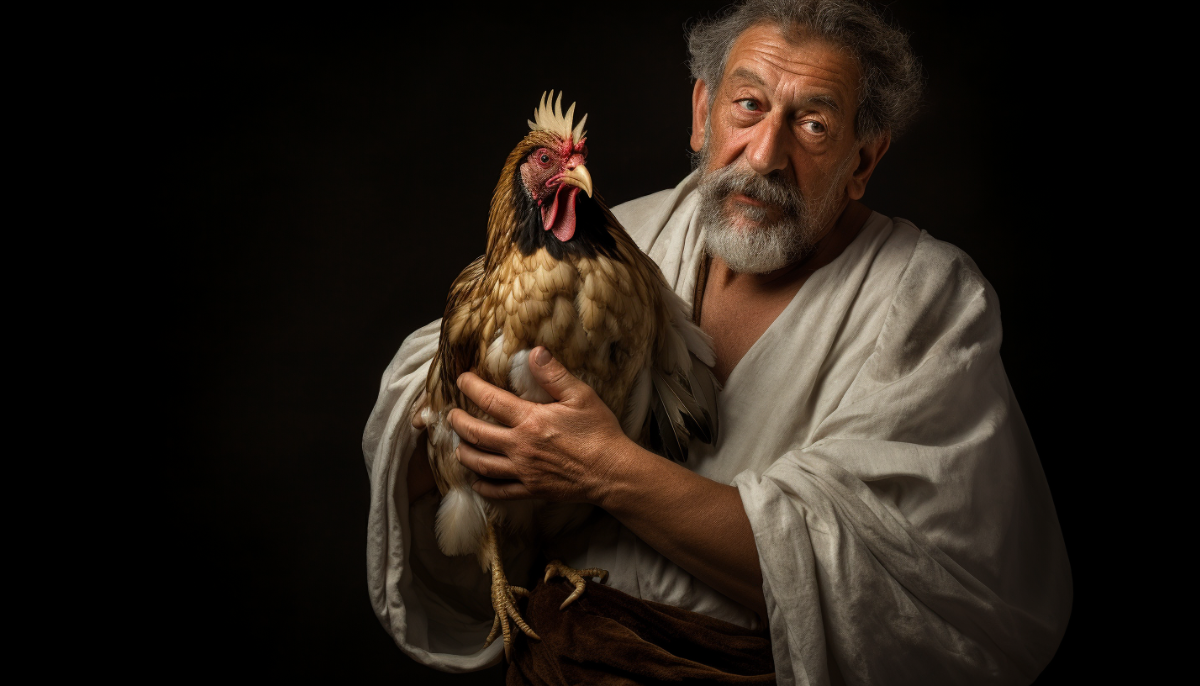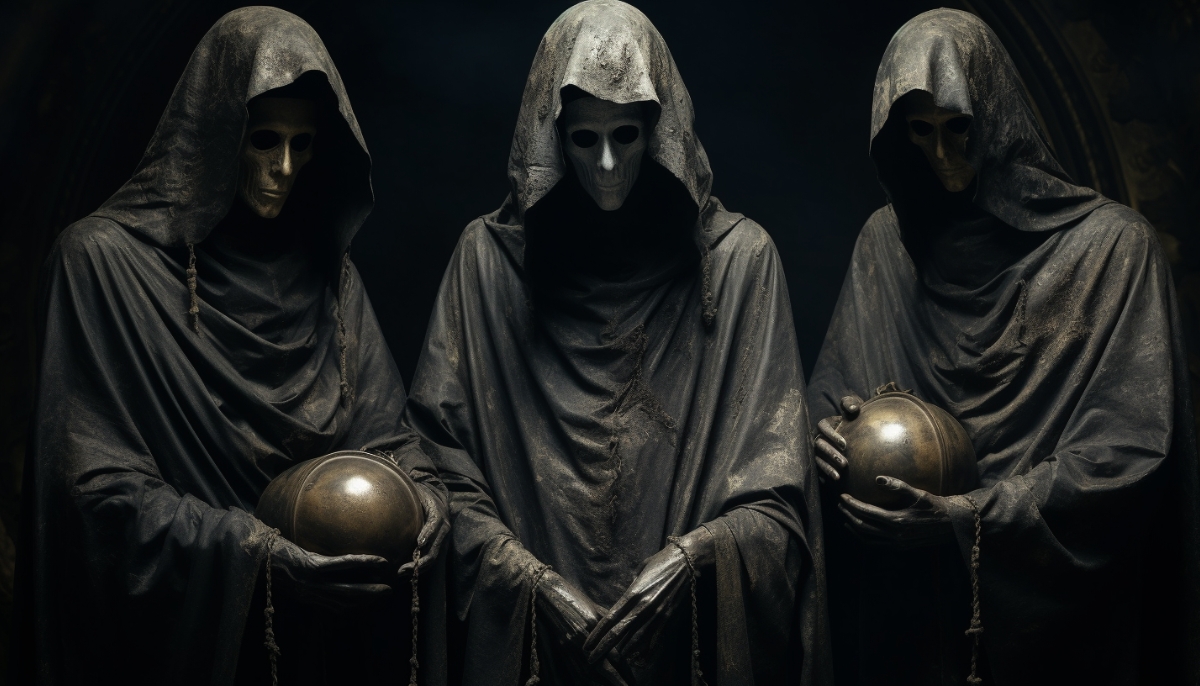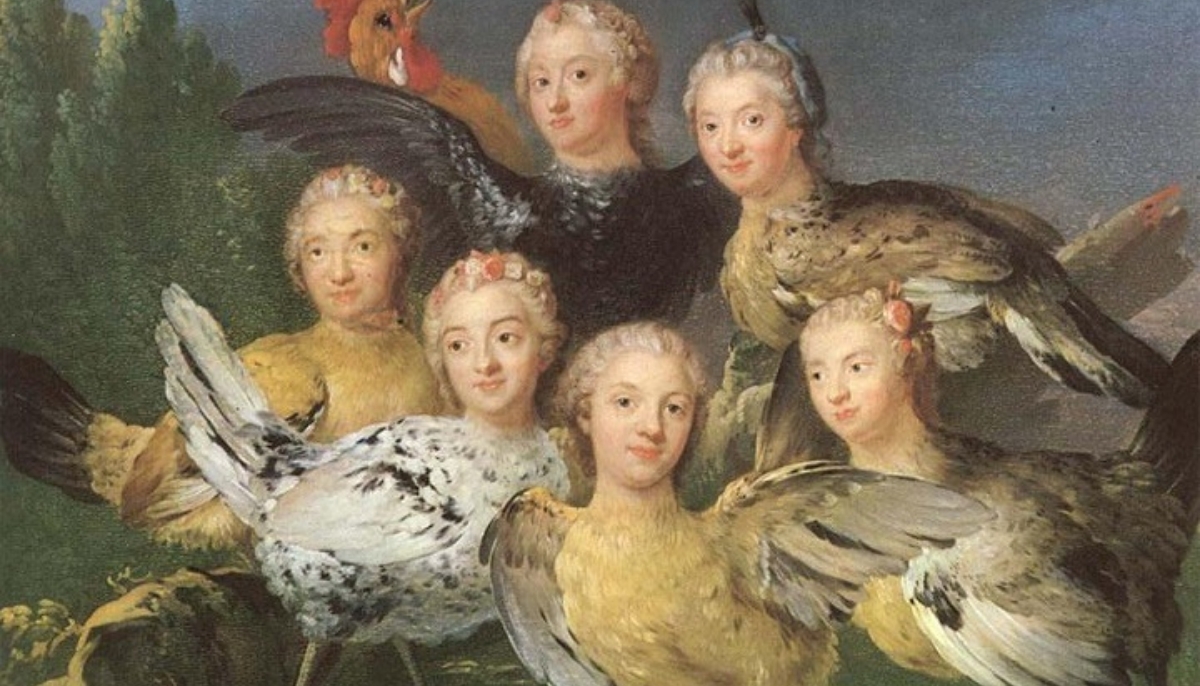In ancient Rome, sacred chickens were not just birds but pivotal figures in decision-making. These chickens were consulted for omens, reflecting the Romans’ deep belief in divine signs guiding their actions.
This explores the role of the sacred chickens of Rome, the importance of omens in Roman society, and some notable historical instances involving these feathered oracles.
It’s a journey into a unique aspect of Roman culture, where the flutter of wings and the pecking of grains held significant weight in shaping history. Let’s delve into this intriguing part of the past.
the use of Omens in ancient Rome
In ancient Rome, omens were a cornerstone of society, guiding decisions from the mundane to the monumental. This practice, known as augury, involved interpreting natural phenomena to discern the will of the gods. The focus wasn’t on predicting the future but on seeking divine approval for actions, especially in political or military contexts.
The Romans observed a variety of omens. Key among these were the behaviors of birds and animals. The examination of entrails and other parts of sacrificed animals was also common. Man-made objects and situations held significance, too.
There were two categories of omens. The first and most crucial were those actively sought out, like thunder, lightning, and birds’ flight patterns or cries.
The second type comprised unexpected occurrences. These could be the sudden appearance of animals associated with gods, like bears for Artemis or wolves for Apollo. Mundane events, such as spilling salt, sneezing, stumbling, or even the creaking of furniture, also carried meaning.
This practice underlined the Romans’ belief in a cosmos where gods communicated their approval or disapproval through signs in the natural world.
What were the sacred chickens of Rome?
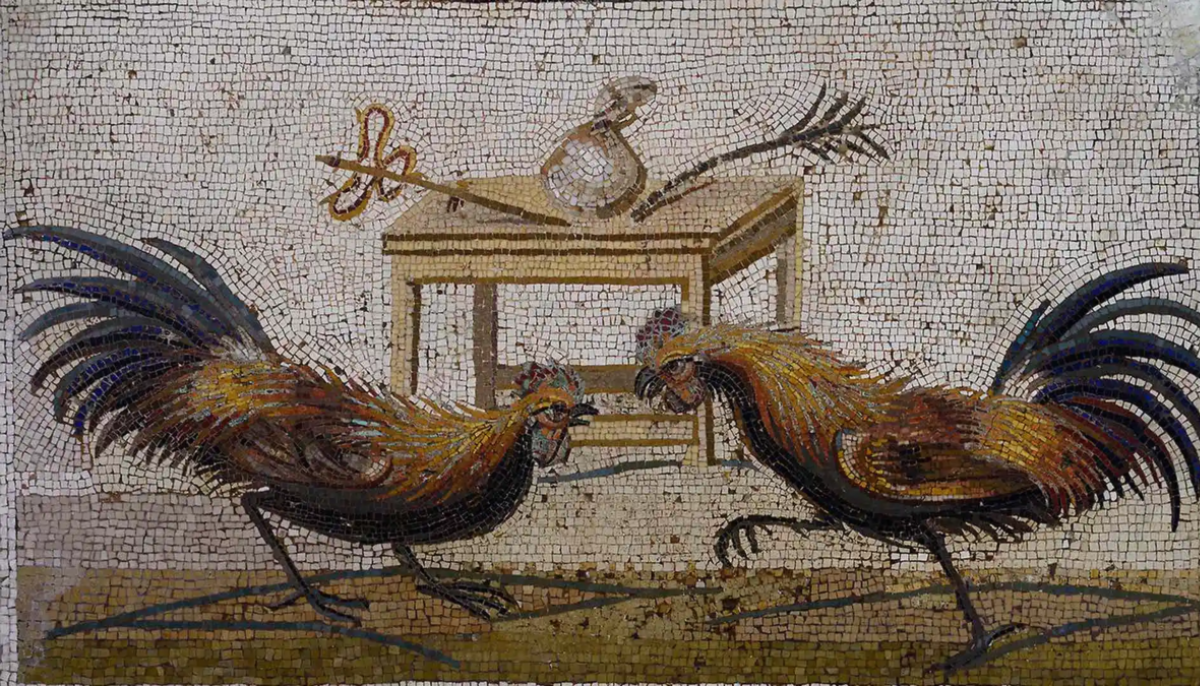
The Sacred Chickens of Rome were more than just birds; they were vital to Roman decision-making. The responsibility of caring for these birds fell to a figure known as the Pullarius.
Originating from the island of Negroponte, these sacred chickens were brought to Rome, holding a special status over local poultry. Before being consulted for omens, these chickens were kept unfed in their cages. This was a deliberate measure to enhance the accuracy of their divination.
When it was time for divination, the Pullarius would release the chickens and present them with grain. The reaction of the chickens to this offering was pivotal. If they ate the grain, it signified a favorable outcome for the venture in question. Romans interpreted this as a sign of the gods’ approval.
On the other hand, if the chickens refused to eat, it was taken as a clear indication that the gods did not support the venture. In such cases, the proposed action or plan was often abandoned.
famous stories of the sacred chickens of Rome

The sacred chickens played pivotal roles throughout Roman history in some of the most memorable and consequential moments.
These feathered oracles, often overlooked in the grand narrative of Rome, were central to decisions that shaped the republic’s destiny.
the third sammnite war
The role of sacred chickens in the Third Samnite War is a tale of superstition and strategy. In this conflict, Roman consuls Spurius Carvilius and Lucius Papirius Cursor led separate assaults on Samnite towns. Carvilius quickly took Amiternum, while Papirius focused on Duronia and then moved towards Aquilonia, a Samnite stronghold.
Before attacking Aquilonia, Papirius gave a rousing speech focusing on Roman battle tactics and the Samnites’ offense to the gods. Planning to attack the next day, he sought omens from the sacred chickens through the Pullarius. The chickens, however, did not eat the grain, a bad omen. Despite this, the Pullarius reported falsely that the chickens had eaten enthusiastically, a lie that was later discovered.
Papirius, committed to battle and hearing of the dispute over the omens, sent the Pullarius to the front line. The belief was that if he lied, he would face divine punishment. Indeed, he was struck down by an enemy javelin before the battle even began. Papirius interpreted this as divine punishment and, bolstered by a crow’s caw interpreted as a favorable omen, proceeded with the battle.
The Romans narrowly won, aided by timely cavalry reinforcements. The capture of Aquilonia led to significant loot and a decisive victory in the war.
the first Punic War
The First Punic War provides another striking example of the sacred chickens’ influence in Roman military decisions. Publius Claudius Pulcher, a Roman commander, sought the chickens’ approval for a surprise attack on the Carthaginian fleet at Drepana. However, the chickens did not eat, signaling a bad omen.
Defiantly, Pulcher responded to this negative sign by saying, “Since they do not want to eat, let them drink!” and had the chickens thrown into the sea. This act of contempt towards the sacred chickens and their omens led to disastrous consequences. The ensuing naval battle resulted in the near destruction of the Roman fleet, a significant blow to Rome’s naval power.
Following this defeat, Pulcher faced trial in Rome for impiety due to his disregard of the sacred chickens’ warning. The trial’s outcome remains unclear; he was either exiled after conviction or acquitted due to a sudden rain shower disrupting the proceedings, leading authorities to abandon the trial.
Pulcher’s fate after the trial was grim regardless of the verdict, as he died shortly thereafter. This was famously remarked upon by his sister Claudia, who, caught in a crowd, wistfully wished for her brother’s return to rid Rome of its problems through his apparent ineptitude.
Gaius Hostilius Mancinus and the Numantines
In another intriguing episode, the sacred chickens played a role in the fate of Gaius Hostilius Mancinus during his campaign against the Numantians. As Mancinus prepared to consult the chickens for omens, they unexpectedly escaped into the woods. Despite extensive searches, the chickens were never found.
The absence of the chickens and their omens proved ominous for Mancinus. He faced a significant defeat at the hands of the Numantines and was forced to agree to their terms of peace. Upon his return to Rome, Mancinus was put on trial by the Senate. In a dramatic turn of events, the Senate refused to ratify the peace treaty he had negotiated and decided that Mancinus should be handed over to the Numantines, naked.
This decision was carried out, but the Numantines refused to accept Mancinus, an act that further underscored his disgrace. This story illustrates the gravity of omens in Roman military campaigns and the harsh consequences faced by those who, willingly or not, failed to heed them.
Gracchus and the sacred chickens
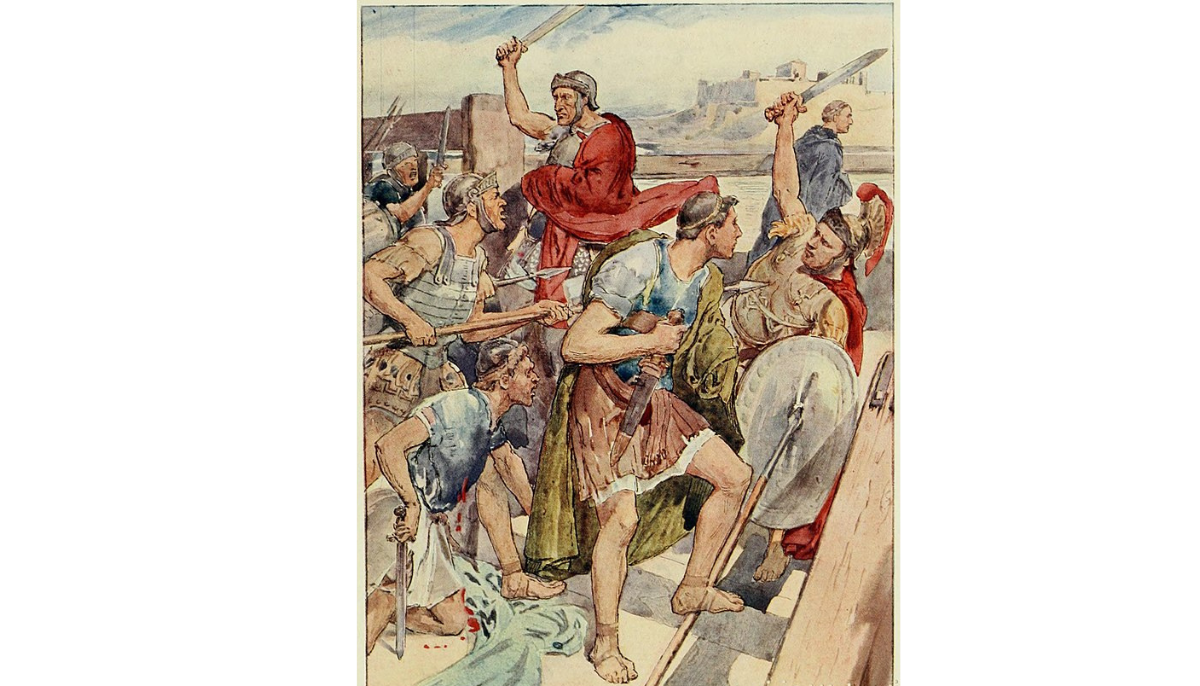
The story of Tiberius Gracchus, the notable Tribune of the Plebs, offers another insightful episode involving the sacred chickens. Gracchus, known for his efforts to reform policies in favor of the poor and landless in Rome, had made considerable enemies in the Senate due to his ideas and methods. Seeking to continue his reforms, he aimed for a second term as Tribune, a move unprecedented but not illegal.
On the critical morning of the vote, Gracchus turned to his family’s sacred chickens for guidance. The chickens showed disapproval of his attending the balloting at the Campus Martius. This election was already fraught with tension, as the Senate had delayed it in an attempt to diminish Gracchus’ support. The chickens’ negative omen seemed to reflect the contentious atmosphere.
Gracchus, however, chose to ignore the chickens’ warning. This proved to be a fatal decision. Before the election could commence, he was tragically killed in a riot. Gracchus’ story is a poignant reminder of the turbulent nature of Roman politics and the revered role that sacred chickens played in decision-making processes.
The decline of the sacred chickens
As Rome transitioned from a Republic to an Empire, the practice of interpreting omens, once central to Roman decision-making, gradually diminished. The centralization of power around an emperor reduced the influence of traditional religious practices and divination.
Emperors often preferred relying on their judgment or counsel from close advisors over the unpredictable signs from sacred chickens or other omens. This shift marked a significant change in how decisions were made at the highest levels of power.
Later, with the rise of Christianity as the dominant religion in the Roman Empire, pagan practices, including the use of omens, were increasingly sidelined. Christianity’s monotheistic beliefs did not accommodate the Roman pantheon and their associated omens, leading to a complete transformation in Rome’s spiritual and cultural landscape.
This transition marked the end of an era where the pecking of chickens could sway the decisions of generals and politicians, reflecting a broader shift in the worldviews and practices of Roman society.
